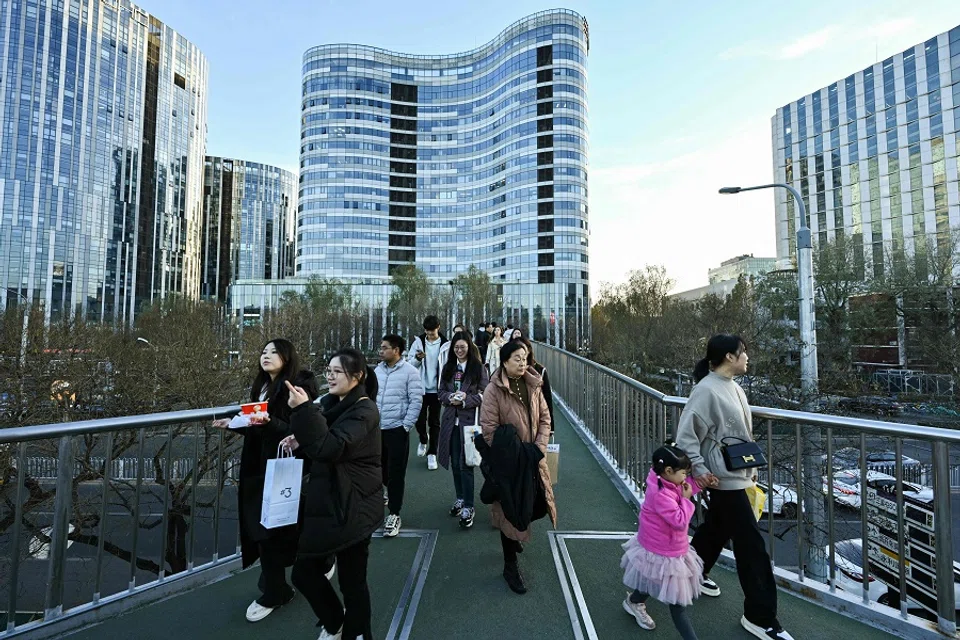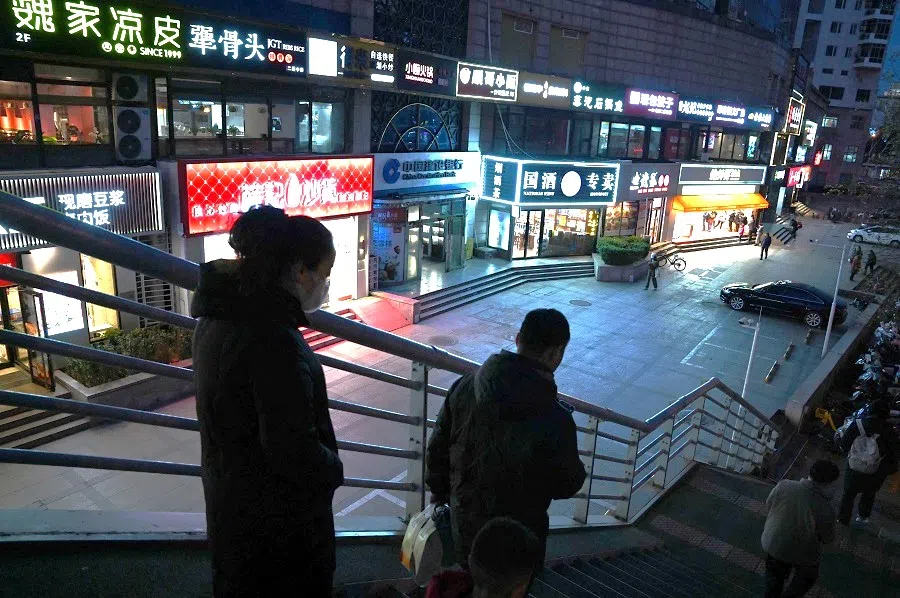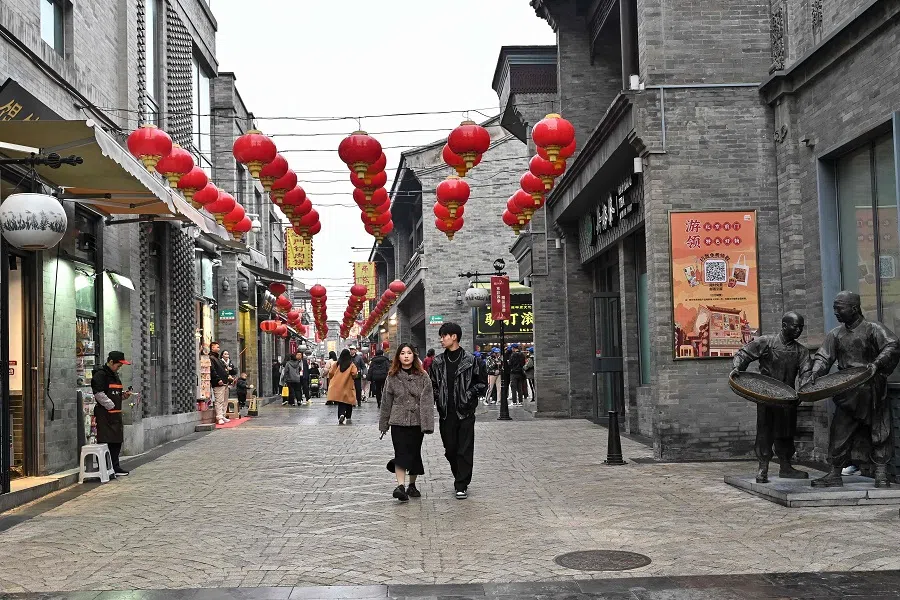From farm to office, China’s unfinished cultural transformation
China grapples with sluggish consumption, price wars, a “996” work culture and a low birth rate. Despite rapid industrialisation, a persistent agrarian-like work culture fuels mental stress. Lianhe Zaobao’s Sim Tze Wei questions whether China’s “high-quality development” strategy can truly overcome involution and enhance quality of life.

When you start shopping online in China, the heaps of low-priced goods driven by involution will shock you. How do you pass up such good deals? As a result, you are “always in need of something” and have “parcels left at your doorstep every day”.
Disorderly price wars
Over the past six months, I have only returned one item. It was a thermos that I was initially pleased to have bought at a bargain. However, I immediately spat out the first sip of water I took from it, as my mouth was filled with a lingering chemical plastic taste. That one spit also shattered my illusion of cheap items. The thermos was one-fifth the price of the authentic product — indeed, you get what you pay for.
While I have not gone to the other extreme of only buying expensive items, I am now wary of low-priced goods, especially those that are extremely cheap. Would you buy a S$3 (US$2.24) T-shirt? Eventually, I decided to skip these ultra-cheap products altogether, as the time spent agonising over whether to buy them has already exceeded the three-dollar cost.
Are e-commerce platforms — faced with the difficulties of selling products — forced into cut-throat competition and price cuts due to the lower incomes and limited purchasing power of consumers? Or are these e-commerce platforms aggressively cutting prices to expand their market share? The relationship among income, purchasing power and market share can sometimes be like a chicken-and-egg situation, where either could come first.
... it not only distorts prices as indicators of market supply and demand, but also saturates the market with inferior products made with substandard materials and workmanship.

From a homewear T-shirt costing less than S$3 to electric vehicles you can ride on the road, cut-throat price competition is ubiquitous in the Chinese market.
The competition among e-commerce platforms, businesses or restaurants indeed improves the cost-effectiveness of products and benefits consumers. This is good news for low-income and extremely low-income groups seeking “consumption downgrade”. But once a disorderly price war ensues, it not only distorts prices as indicators of market supply and demand, but also saturates the market with inferior products made with substandard materials and workmanship.
The direct impact on the economy is that vicious involution leads to unprofitable or even loss-making investments. The more they sell, the greater the losses, ultimately testing which company can afford to lose the most. When they can no longer bear the involuted environment and there are no profits to be earned, they head overseas. And when that also becomes unsustainable, they simply pack up and leave.
The vicious involution not only damages the consumers’ experience but also undermines their interests. When it comes to food and clothing, it is not just about low prices. Consumers want to save money, but they also want peace of mind.
Causal relationship among involution, income and purchasing power
A highlight in China’s news this week is the convening of the annual Central Economic Work Conference, following the Politburo of the Chinese Communist Party meeting on 9 December that had set the tone for next year’s economic work. Media outlets have noted two key expressions from the Politburo meeting: strengthening unconventional counter-cyclical adjustments and expanding domestic demand on all fronts.
But herein lies the problem: the Chinese market is rife with destructive involution, so how can regular consumption be promoted and investment efficiency enhanced?

These expressions are timely. That same day, the consumer price index and producer price index for November was released, both below market expectations, indicating that the Chinese economy is still struggling with weak domestic demand. Recent measures aimed at revitalising the economy fell short, and deflationary pressures are intensifying.
Expanding domestic demand also involves vigorously boosting consumption and improving investment efficiency. With the China-US trade war set to spark off once Donald Trump takes office in January next year, China’s foreign trade is bound to face significant challenges, making domestic demand critical for economic growth.
After the Politburo proposed comprehensive expansion of domestic demand, the consumption side would most likely become one of the key counter-cyclical measures.
But herein lies the problem: the Chinese market is rife with destructive involution, so how can regular consumption be promoted and investment efficiency enhanced?
This goes back to the causal relationship among involution, income and purchasing power. Companies engaged in detrimental involution would blindly cut prices in order to capture a larger market share. Despite goods and services being sold, profit margins are near zero or falling into the negatives.
The overtime work and gruelling work conditions ingrained in daily life have resulted in people being exhausted to the point of not being able to live life regularly.

When companies are not making profits, can employee incomes be good? A common lament across the various industries is how hard it is to make money. With disposable income declining and income expectations rocky, consumer desire diminishes, leading to reduced production investment and creating a vicious cycle.
Achieving high-quality development and high-quality life
The key to breaking this vicious cycle hinges on increasing residents’ disposable income, improving the social security system, as well as boosting consumer confidence and their willingness to spend.
Managing public expectations is crucial when unemployment is high and the real estate crisis is not fully resolved. This also involves reforms in the income distribution mechanism; raising the personal income tax threshold could increase people’s real disposable income.
The more fundamental issue is, with all sectors mired in involution, do people still have the time and desire to engage in normal consumption, especially given that the “996” working culture (working from 9 am to 9 pm, six days a week) has become the norm? The overtime work and gruelling work conditions ingrained in daily life have resulted in people being exhausted to the point of not being able to live life regularly.
Renowned Chinese sociologist Sun Liping used the example of declining marriage and birth rates impacting consumption. He said, “With our social life distorted and steeped in involution, how can there be normal consumption in such a life? Where can normal economic operation and development come from without normal consumption?”
The ultimate goal of high-quality development is to achieve a high-quality life — in this process, it is necessary to move away from involution and the small-scale agrarian mentality.

Involution is reportedly a sociological term first introduced by American anthropologist Clifford Geertz in his book Agricultural Involution: The Processes of Ecological Change in Indonesia. From an economic perspective, it refers to “diminishing marginal utility and growth without development”.
To some extent, although China rapidly completed its industrialisation process in around four decades, the prevalent involution and gruelling work culture are somewhat similar to an agrarian society. The cultural imprint of the social norms and customs suitable for agricultural production has prevailed in spite of industrialisation and urbanisation. However, farmers were physically exhausted in the peasant society, while modern urbanites would also have to endure mental stress.
Understanding the “high-quality development” pushed for by the officials from this perspective clarifies the underlying development logic. The ultimate goal of high-quality development is to achieve a high-quality life — in this process, it is necessary to move away from involution and the small-scale agrarian mentality.
This article was first published in Lianhe Zaobao as “内卷式做牛做马难有正常消费”.





